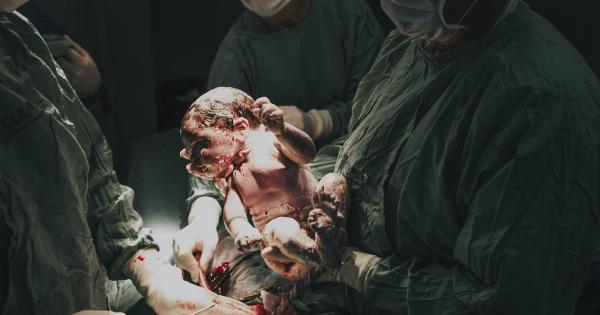Caesarean section, also known as C-section, is a surgical procedure where a baby is delivered through incisions made in the mother’s abdomen and uterus. Over the years, there has been an increase in the number of C-sections performed worldwide.
According to the World Health Organization, the recommended rate for C-sections is between 10-15%, but some countries have rates as high as 60%.
This article will explore the impact of Caesarea on infant health and the reasons behind the increasing rate of C-sections.
Why is there an Increasing number of C-sections?
There are several reasons why there has been an increase in the number of C-sections performed, including:.
Medical reasons
There are times when a C-section is medically necessary. For example, if the baby is in distress, the umbilical cord is wrapped around the baby’s neck, or if the mother has placenta previa or preeclampsia.
Elective C-section
Some women opt for elective C-sections for various reasons, such as fear of the pain associated with vaginal delivery, the desire for a scheduled delivery date, or if they had a traumatic experience during a previous delivery.
High-risk pregnancies
Women who have high-risk pregnancies, such as those carrying multiples or preterm babies, sometimes require C-sections to reduce the risks for the mother and baby.
How does Caesarea impact Infant health?
While C-sections can be life-saving in some situations, they also come with risks to the mother and baby. Here are some ways C-sections can impact infant health:.
Breathing problems
Babies born via C-section are at a higher risk of developing breathing problems compared to those born vaginally. This is because during vaginal delivery, the baby goes through the birth canal, which helps to clear the liquid from their lungs.
However, during a C-section, the baby is delivered quickly, and there may not be enough time for the lungs to clear.
Delayed breastfeeding
C-sections may delay the start of breastfeeding for babies, which can have negative impacts on their health. Breast milk provides essential nutrients and antibodies that protect against infections and diseases.
Delayed breastfeeding may leave the baby more susceptible to infections and illnesses.
Increased risk of infections
Babies born via C-section are at a higher risk of developing infections. During vaginal delivery, the baby comes into contact with the mother’s healthy bacteria, which helps to establish their microbiome and immune system.
However, during a C-section, the baby is not exposed to this healthy bacteria, which can lead to an increased risk of infections.
Increased risk of allergies and asthma
Studies have shown that babies born via C-sections have a higher risk of developing allergies and asthma later in life.
This is thought to be because they miss out on being exposed to certain bacteria during vaginal delivery that helps to establish their immune system.
The Bottom Line
C-sections are a necessary procedure in some situations, but the increasing number of elective C-sections and the potential risks associated with them is a cause for concern.
Mothers and healthcare providers need to work together to weigh the benefits and risks of C-sections and ensure they are only performed when medically necessary.





























